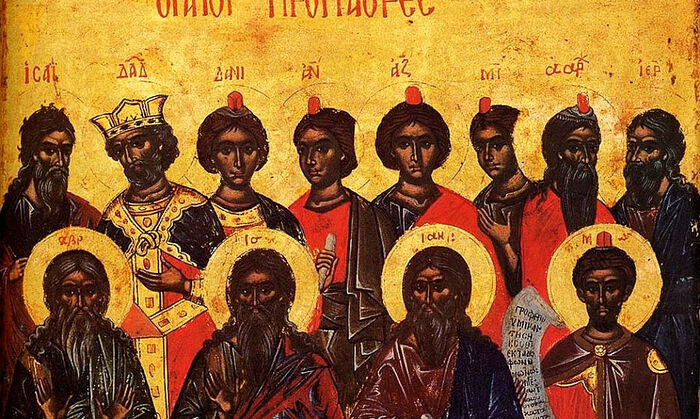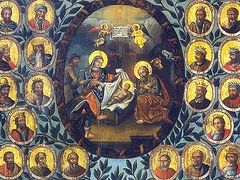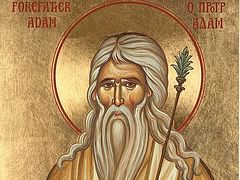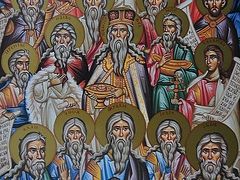Many of us are in the habit of overlooking one of the most important abilities that is common to us all. Though focusing our attention is a bit harder for some than for others, we can all learn to keep our priorities in order. We can put first things first and direct our time and energy to what is most important. We can give less attention to less significant matters and fuel our engagement with what really matters. Regardless of how our minds wander at times, doing so consistently will transform our lives and shape our souls.
Unfortunately, the people in today’s gospel reading refused to put first things first, for they rejected the invitation to enter into the joy of the great banquet that represents the Kingdom of God. One owned real estate, another had animals, and a third was married. Even though these are commonplace conditions, they used them to justify their refusal to accept the invitation to the great party. After the invited guests refused to attend, the master commanded his servant to “Go out quickly to the streets and lanes of the city, and bring in the poor and maimed and blind and lame.” Because there was still room, the master ordered him to go out even further to “the highways and hedges, and compel people to come in, that my house may be filled.”
There may be deeper spiritual significance to the symbolism of the yoke of five oxen in the parable, for there are five books of law in the Old Testament. Having a field of land may represent those who wanted the Messiah to set up a religious kingdom on Earth. Marriage may represent the belief that God’s blessings were only for their family line or ethnic group. Many did reject our Lord because He interpreted the law in a way that challenged the authority of the Pharisees, refused the temptation to become an earthly king of the Jews, and extended the blessing of His Reign even to Gentiles and Samaritans.
In the historical setting of the passage, “the poor and maimed and blind and lame” brought in from the streets to the great banquet represent the Gentiles, who were not the descendants of Abraham and did not know the law and prophets of the Old Testament. We must learn to see ourselves as “the poor and maimed and blind and lame.” Our hope for entering into heavenly joy has nothing to do with having the right ethnic heritage or mastering a set of religious laws. Apart from the mercy of the Savior, we have no claim to the great spiritual heritage of those who foreshadowed and foretold the coming of the Christ across the centuries before His birth.
Those who looked forward in faith for God’s fulfillment of the promises to Abraham did not do so simply on the basis of the law, which came later through Moses. The law was necessary for sinful people as a tutor in preparation for the coming of Christ. The ancestors of the Lord hoped not merely for a great teacher, but for liberation from slavery to sin and death, which the law lacked the power to do. The forefathers of the Savior trusted God that their hope would not be in vain. The original promise to Abraham extended to the Gentiles, for God told him, “In you all the nations of the world will be blessed.” (Gen. 22:18) Now all who are in Christ “are Abraham’s seed, and heirs according to the promise.” (Gal. 3:29) Jew or Gentile, “those who are of faith are blessed with believing Abraham.” (Gal. 3:9) The Savior is born to bring all who bear the divine image and likeness into the joy of the heavenly banquet.
The Hebrews of the Old Testament who prepared for the Messiah’s coming through faith did so of their own free will in response to their calling as the children of Abraham. That is true also for the Theotokos, who is the highest offering of the Hebrew people and became God’s living temple in a unique way as His virgin mother. She was chosen for this astounding vocation and responded in freedom to the message of the Archangel Gabriel. No one forced her at all, but she chose to remain focused on hearing and obeying the Word of God.
Unfortunately, that was not the case for those who had convinced themselves that the normal cares of life excluded them from entering into the joy of the heavenly kingdom. As the master said in the parable, ‘”For I tell you, none of those men who were invited shall taste my banquet.’ For many are called, but few are chosen.” Those who are chosen are those who follow her example of making receptivity to Christ the top priority of their lives. God wants all to be saved (1 Tim. 2:4), but we must use our freedom as human persons to seek first His Kingdom as we find the healing of our souls in response to His gracious invitation.
The conventional responsibilities of life are in no way incompatible with doing so, for they provide opportunities to reorient the desires of our hearts to God as we love and serve Christ in our neighbors. All of our blessings and struggles are part of His creation, and nothing but our own sinfulness keeps us from making them points of entrance into eternal joy. By mindfully offering them to God every day of our lives, we will gain the strength to obey St. Paul’s instruction to “Put to death therefore what is earthly in you: fornication, impurity, passion, evil desire, and covetousness, which is idolatry.” Family life, work, and the countless challenges of living faithfully in our culture present opportunities to find healing from “anger, wrath, malice, slander, and foul talk,” as well as lying. This is possible not because we have fulfilled a list of legalistic requirements, but because in baptism we have “put off the old nature with its practices and have put on the new nature, which is being renewed in knowledge after the image of its Creator.”
As in the parable, “many are called, but few are chosen.” We face the choice every day of our lives whether we are going to make the blessings and struggles of this life opportunities to find the healing of our souls or excuses to become further enslaved to our passions. Pursuing our chosen path we will shape us decisively, leading us either to the joy of the heavenly kingdom or the despair of those who waste their lives on what can never truly satisfy them. The question is not whether we will make ourselves perfect by some religious or moral standard, but whether we will gain the spiritual clarity to see our daily cares as points of entrance into the eternal life of the Savior born at Christmas. If we do not, then we will find it impossible to welcome Him into our hearts with integrity, for we will then have embraced an imaginary spirituality that tries to escape the calling to live faithfully amidst the joys and sorrows of life in the world as we know it.
That is precisely the world that Christ was born to save, and we will find only delusion and disappointment by pretending that there is any way to serve Him faithfully other than by persevering in the daily battle to offer ourselves to Him for healing and fulfillment. Instead of making excuses, we must learn to see all of this life as an invitation to “seek first the Kingdom of God and His righteousness” with the humble trust that “all these things” we need for life in the world “will be added unto you.” (Matt. 6:33) That is our calling every day of our lives and especially now during the last weeks before Christmas, when we must remain vigilantly on guard against every temptation to excuse ourselves from entering into the great joy of the feast of the Nativity in the Flesh of the Word of God. Instead, let us prepare for the banquet through fasting, prayer, generosity, confession, and repentance, so that we will have the spiritual clarity to accept the great invitation that is ours in Christ Jesus.





